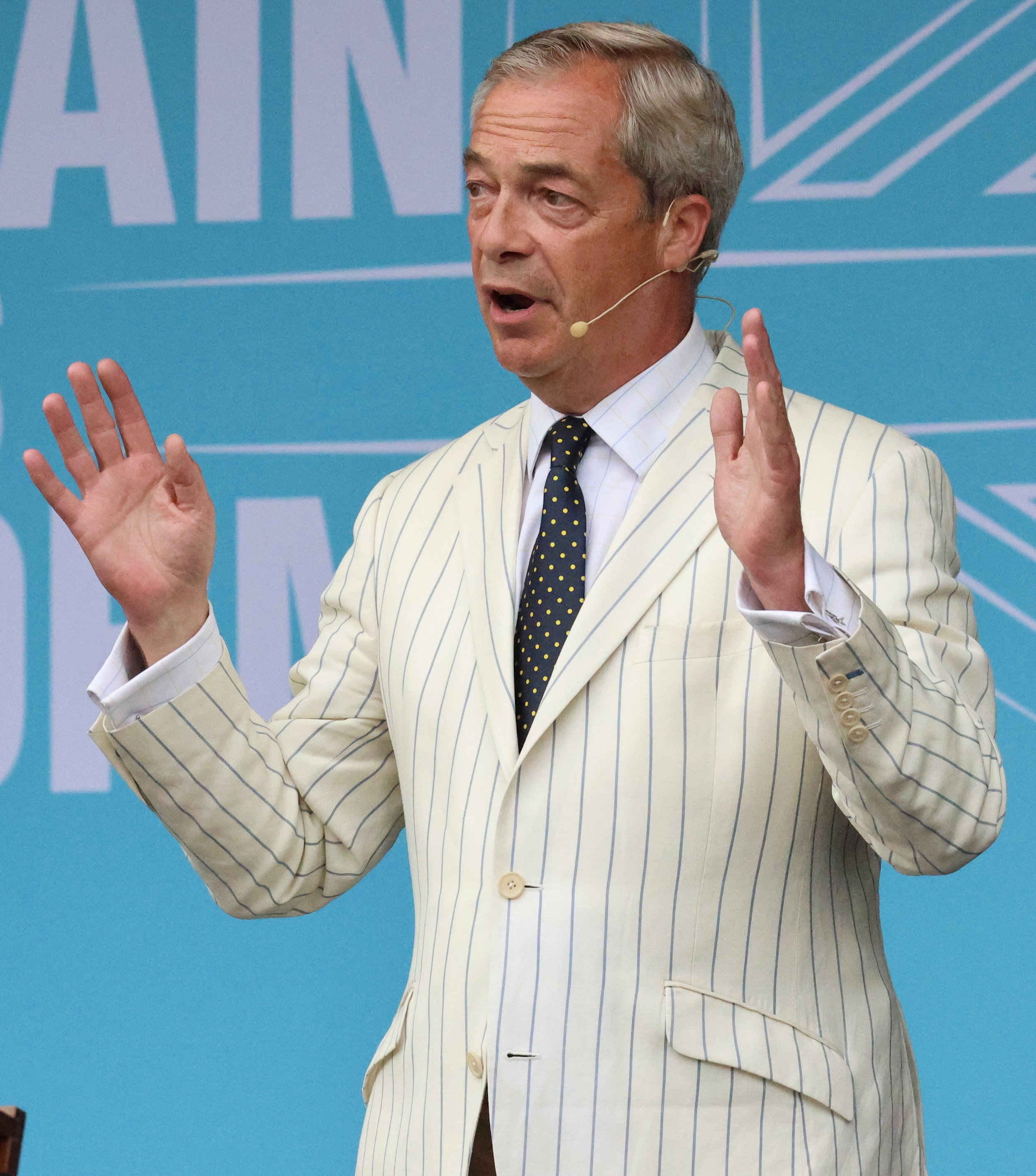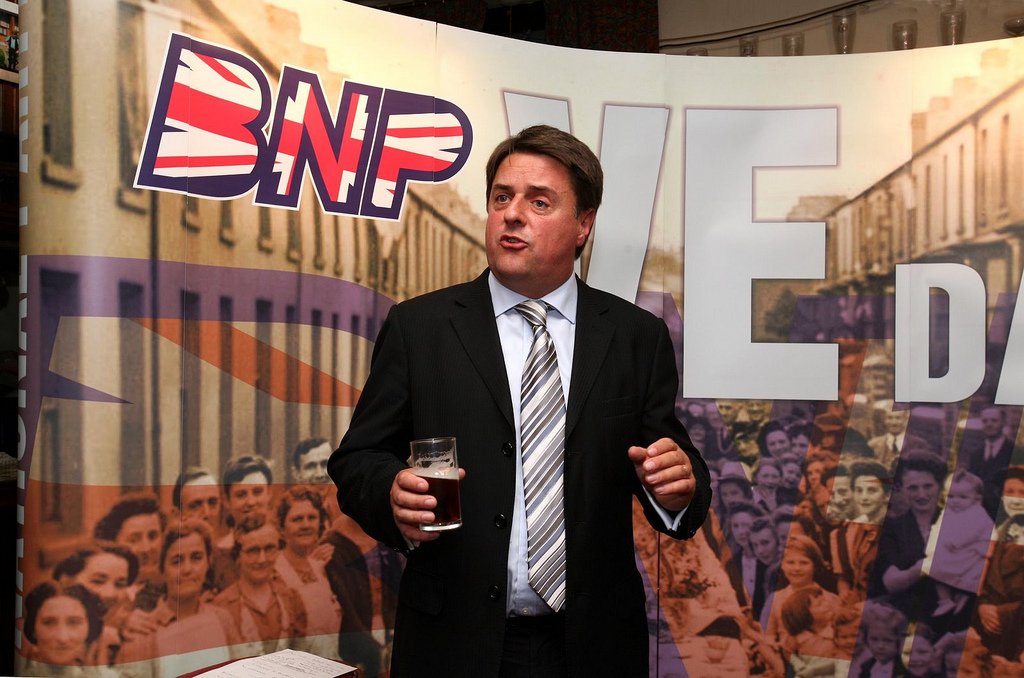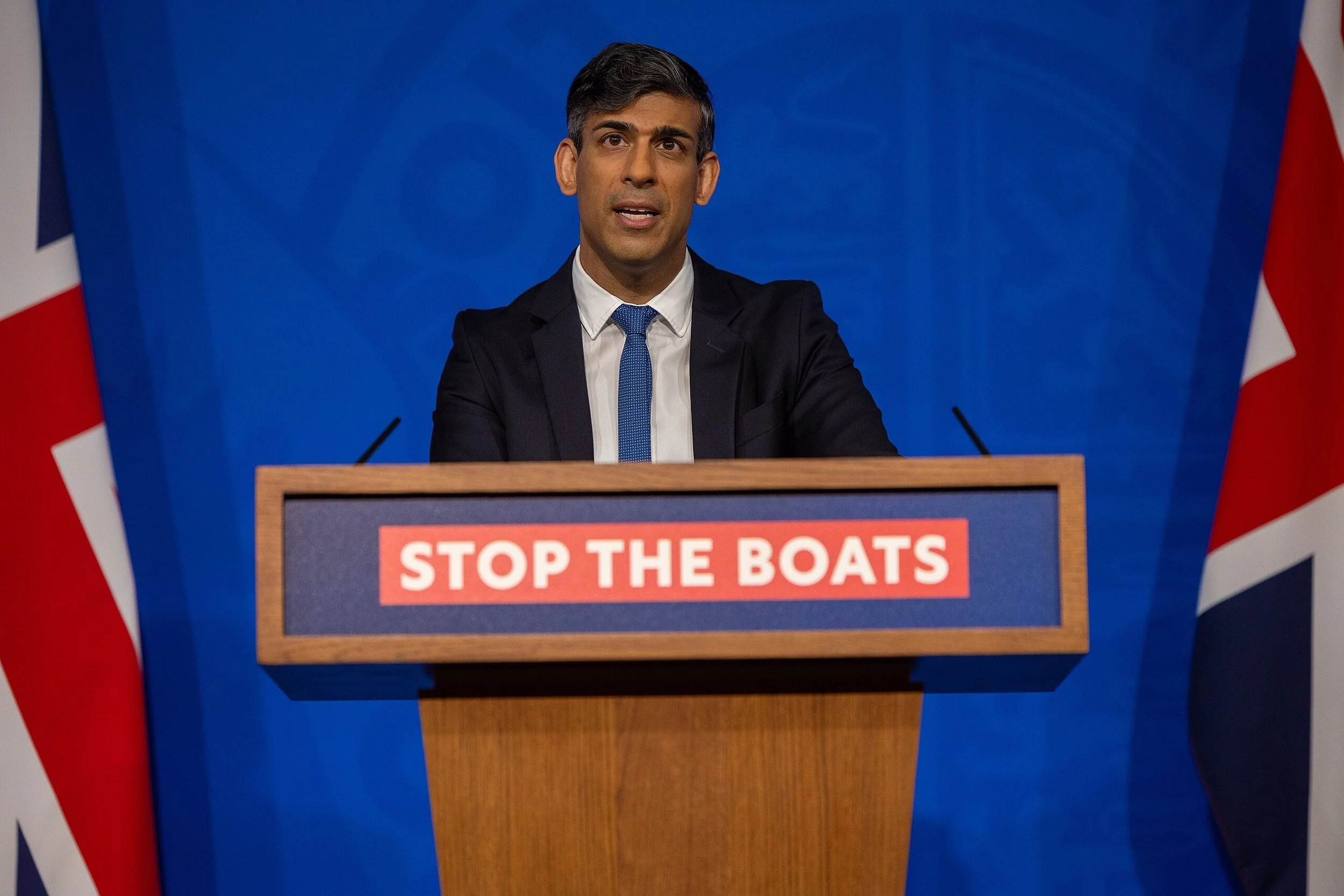Labour have the most seats - but the far-right won this election
This article was originally released as an edition of my newsletter.
Receive future dispatches.
Labour have won a landslide election victory, despite only increasing their voteshare by a few points. This partially reflects the absurdity of the UK’s electoral system, and partially reflects the complete collapse of the British Conservative Party, who have more or less halved their voteshare and now have fewer seats than they have won at any other point in British parliamentary history.
So where did those Conservative votes go?
In large part, they went to the Nigel Farage’s far-right Reform UK party, which was founded only four years ago. The Party won four seats, including one for Farage, who has unsuccessfully run to be an MP seven times. If Farage expertly used his seat in the European Parliament as a platform to promote his hideous values and push the UK closer to Brexit, God knows what he’ll be able to do with a seat in the much more spotlighted British Parliament. With Reform coming second in dozens of seats, the party can position itself as a challenger to Labour when their popularity wains, which, combined with the British media’s obsession for platforming Farage, gives them big growth potential in the coming years.
Many predicted that Farage would fade into oblivion once Brexit happened, since this was his main issue. Instead, railing against “woke” politics, immigrants and bike lanes, he has led the far-right into the strongest parliamentary position they’ve ever had.
What nobody is talking about is how the Conservatives created this party in the first place.
(By the way, I will use the word “Tories” in this newsletter, which is a nickname for the Conservatives originally deriving from the Irish word for “thief”.)
Nigel Farage is a monster that the Conservatives created, and now he’s eating them.
At the turn of the century, the Tories ushered in the populist age.
The last time Labour won a landslide victory against a ruling Conservative Party was 1997, when a young, charming Tony Blair rode a wave of Brit Pop-inspired hope in a resurgent UK to defeat a stale Conservative Party that had been in power for 18 years. As is happening now, this led to a crisis within the Conservatives. The Conservatives binned John Major as leader, and quickly elected William Hague. Desperate to set the Conservatives apart from a Labour Party that had shed its leftist roots to claim the centre ground (just as they have done in the current election, by the way), Hague quickly led the Tories down a populist right-wing rabbit hole.
When I say “populist right-wing”, what I mean is that Hague painted the Conservatives as a party railing against the elite in favour of “the people”, infamously declaring that Tony Blair was turning Britain into a “foreign land”. He railed against “The Chancellor returning from Brussels carrying instructions to raise taxes still further”, and stated the Tories is “never embarrassed or ashamed of the British people”. While the Conservative Party had always been racist and right-wing, the party had never, I would argue, positioned itself as force for ordinary people against the liberal elite.
Hague failed to turn around the fortunes of the Conservatives, who went on to lose the 2001 election to another landslide for Tony Blair’s Labour, and he was quickly disposed of for Iain Duncan Smith, who in turn made way for Michael Howard before David Cameron at last worked out how to win power for the Tories again. After Hague, the Conservatives went back to their roots - right-wing politics that hurts ordinary people, but without this populist hard-right framing.
Pint in hand, the BNP’s Nick Griffin wrote the blueprint that Farage built upon.
When the Tories moved back to the centre, the far-right BNP filled the open space.
There has always been a far-right movement in the UK, but it has usually been far from the centres of power. William Hague took the far-right narrative and made it mainstream. Like a marketing company telling you that you really need this new gadget, this created demand for far-right politics. And when the Conservatives stopped feeding this demand, the British National Party stepped in.
The British National Party (BNP) is an unequivocally fascist party who, for example, launched a “campaign against Islam” and opened food banks to offer ordinary people free food - but only allowed white people born in the UK to use them. Like William Hague, they railed against the “political establishment” and, under the leadership of Nick Griffin, they became the fastest growing party in the country, winning representation at the local level throughout the mid-2000s and two Members of the European Parliament in 2009. A huge moment of controversy came when the BBC allowed Griffin onto their flagship ‘Question Time’ show, which in turn brought in 8 million viewers, creating a blueprint that the BBC has followed until this day - giving Nigel Farage almost limitless airtime to increase viewing figures, while largely ignoring the less provocative but (until recently) much larger Green Party.
When the BNP declined, Farage replaced them.
In the early 2010s, the BNP declined, unable to produce any political leaders of any sway beyond Nick Griffin. As fascists tend to, internal divisions ate the party up, and Nick Griffin stepped down before being banned from the party. Step onto the stage, Nigel Farage and the United Kingdom Independence Party (UKIP).
Over the coming years, UKIP would follow the blueprint of the BNP, winning seats at the local and especially European level, but with a less openly fascist approach. Farage used the European Parliament as a platform, provoking progressives to spend their time responding to his talking points, and pressuring the Conservative Party which had won power in 2005. By 2013, Farage’s media machine was so strong that the Conservative Party’s eurosceptic faction managed to pressure the party to promise a Brexit referendum if they were elected, thereby convincing eurosceptic voters that might otherwise vote for UKIP to instead vote Conservative.
As tends to happen when you pander to the far-right, the strategy worked in the short-term, with the Conservatives stunting the growth of UKIP and winning another term in government, but ultimately fanned the flames of far-fight politics, contributing to the UK voting to leave the EU in 2016.
Over the coming years, the eurosceptic faction of the Conservative Party became increasingly extreme and increasingly powerful within the Conservatives, threatened by the rise of Farage’s new Brexit Party. The faction helped to oust David Cameron’s replacement, Theresa May, before installing Boris ‘Get Brexit done’ Johnson.
Get the latest changemaking strategies in your inbox.
Under Boris Johnson, the Conservative Party returned to populism.
While Boris Johnson is not a far-right politician, he is undoubtedly a populist one who railed against the political elite for not getting Brexit done despite being “the will of the British people”, and won a landslide victory against Jeremy Corbyn largely because of this narrative. Leading the party into scandal after scandal, he was eventually ousted.
Liz Truss defeated Rishi Sunak to be the new leader of the Conservatives before blowing the economy of the country, and popularity of her party, to smithereens by announcing a mini-budget that cut just about every form of tax that it could. She was axed faster than it takes an iceberg lettuce to go off. After the shortest premiership in British history, Liz Truss was replaced by her old adversary - Rishi Sunak.
Under Sunak, the Conservatives have gone further down the populist right-wing rabbit hole.
By the time time Sunak became Prime Minster, it was over 20 years since William Hague’s infamous ‘foreign land’ speech, and populist far-right politics had pushed the UK out of the EU and largely taken over British politics. Farage’s Brexit Party had rebranded as Reform UK, and was threatening to take votes from a massively unpopular conservative party.
The Conservatives, in desperation, had already proposed the Rwanda policy, in which they promised to deport asylum seekers to Rwanda where they would be processed and, if successful in claiming asylum, would be kept in Rwanda instead of being allowed back to the UK. This policy is straight from the populist right-wing playbook: utterly performative and with little hope of being enacted, it is designed to provoke a vicious backlash from progressives who the Conservatives wanted to portray as maniacs.
As leader, Sunak railed against trans women, campaigned with the slogan “stop the boats” (of asylum seekers arriving across the English channel), and led a draconian crackdown on the right to protest. Sunak often sounds like his speech writer simply put a Nigel Farage speech into ChatGPT and asked them to make it less punchy and more pompous.
The Conservatives turned to far-right politics to save them from electoral oblivion, and they failed. The monster that they unleashed 20 years ago has grown out of control, and now it’s eating them up. They created Frankenstein, who turned into Faragenstein.
Not only do a far-right party have a stronger parliamentary presence than ever in British history, with huge potential for growth.
Not only did the Conservatives pass far-right policy .
Not only did they use a far-right narrative.
But what is most concerning is that the governing party, Labour, also gave into the dog-whistle politics of William Hague, Nick Griffin, and Nigel Farage. Three days ago, Starmer took a swipe at trans people, asserting that trans women “don’t have the right” to use women-only spaces. Throughout the campaign, he has treated asylum seekers as a problem that need solved, and protestors as a pain in the ass of ordinary people.
Sure, he is better than the alternative, without a doubt.
But we need to learn from history. When you use the politics of the far-right, you might defeat them in the short-term, but in the long-term they will overpower you. And then we’re all fucked.
Now over to you, France.
STUFF WORTH KNOWING - ELECTION VERSION
🌻 The Green Party quadrupled its number of seats. Okay, the UK’s first past the post voting system means they only had one to begin with. But this is still huge! While two of the wins are classic Green territory (urban constituencies that would otherwise vote Labour), two are rural conservative constituencies.
❤️ Corbyn keeps his seat. Running as an independent after being thrown to the wolves by the Labour leadership and banned from the party, the man who nearly became Europe’s most left-wing Prime Minister ran as an independent in London and won. Go on Jezza!
⚖️ A record seat swing. Even if Labour had only won a one seat majority, this would still have been a bigger shift from one party (the Conservatives) to another (Labour) than has ever happened in British parliamentary history. And with dozens of seats left to declare, they already have 82 seats more than they need for a majority. British politics has never been this volatile.
😈 Big name Tories lose their seats. Liz Truss, Jacob Rees-Mogg, and 5 government ministers (Alex Chalk, Gillian Keegan, Johnny Mercer, Penny Mordaunt and Grant Shapps) all lost their seats. See ya wouldn’t wanna be ya!


